DAISY SAVAGE, HEAD OF UPPER SCHOOL: Across the last few weeks, I have been thinking here and there about parenting (it's an occupational hazard). With three children in their 20s and years of work that have allowed me to watch hundreds of other parents, I like to think that I know something about it. But honestly, the more I reflect, the more I see the role of 'parent' as the proverbial onion: you're always peeling it and discovering yet another layer. And while that layer usually looks familiar, it is still new and somewhat unexpected.
The more I reflect, the more I see the role of 'parent' as the proverbial onion.
Being a good parent can, at times, be painful.
Parenting begins with joy and hope and anxiety. What an exciting thing… But what a responsibility! For most of us, it is the first time in our lives that we truly shoulder - or at least feel - the complete burden of caring for another person's safety, security, and future. Most parents are determined to do everything they can to succeed at this challenge, but there are unexpected elements. For example, we hear a lot about how "today's parents" are more interested in being friends with their children than in teaching them the tough life lessons they need about responsibility, behavior, morals, etc. That teaching role is not always pleasant, as many of you know. Sometimes it feels like it puts a wedge in our relationship with our children, that it stifles the expression of love. Being a good parent can, at times, be painful.
Wendell Berry explores this a bit in his poem, 'The Way of Pain.' The first verse goes like this:
For parents, the only way
is hard. We who give life
give pain. There is no help.
Yet we who give pain
give love; by pain we learn
the extremity of love.
When I think of the beauty and innocence and full-throated laughter of children in their early years - that period of complete and utter dependence on the adults in their lives - it is enough to bring tears. There is a purity and authenticity to this time; we want to honor it, preserve it, and protect it. But I also think that, too often, we tend to label our children at that moment in a manner that says, "This is who you are." By elementary school, our children know who is the “smart” one, the “quiet” one, the “troublemaker,” or the “angel,” and those labels stick like burrs. We tend to forget that growth and change are constant processes in children...and in all of us.
As great as it would be to have our teen or 'tween give us hugs, that is about what we want, not about what they need.
As our children move through early childhood and into the swirl of elementary school and then on into the turbulence of adolescence, we can forget that the opposition and moodiness that sometimes kidnap them are only the tip of the iceberg, that even more is going on beneath the surface, and usually not even within the consciousness of our children themselves. This, too, is preparation: the earliest stages of developing that thick skin and sense of self that are so essential to becoming a healthy, independent adult. Hard as it is to let go of that image of the angelic, adoring child, we need to steel ourselves as parents for this time when 'holding firm' and being a proper role model are the most important elements of parenting. As great as it would be to have our teen or 'tween give us hugs, that is about what we want, not about what they need.
Parenting never stops...it just changes.
Then comes high school, and hopefully college, and increasing distance. Again, it's painful because we miss that closeness, that pure and unrestrained loving relationship, but letting that go is the price of independence. It's one of the critical phases of good parenting.
I am certainly not saying that being a parent is all about broken hearts and pain. Several days ago I experienced a revelation, and that was simply this: parenting never stops...it just changes. I have loved watching my children grow up, even as that process has occasionally driven me crazy. They have gone to college and have now launched their adult lives. As amazing as it is to hold one's newborn, I have to acknowledge how powerful it is to regard one's 20-something and consider what and who s/he has become (despite all the non-expert parenting). The optimism, the capacity, the spirit...it's reassuring.
Obviously, I am writing from my own perspective: white, American, affluent. Some of you may see all this quite differently. Still, I would like to think that a significant portion of my experience as a parent is universal - we love, we hope, we dream, we fear.
Now nearly 60, I am coming to understand that my hope for my children - for schools, for society, etc. - cannot exist without a basis in fear, and that my dreams for my children can only come true if I root myself in reality (that is, there is a difference between a dream and a fantasy). That, as Berry suggests, "we who give pain give love," and "by pain we learn the extremity of love." I'm also seeing that being a dad or a mom never really stops; it just changes form over the years. I'm grateful for this realization, just as I am appreciative of the more balanced relationships that my son, my daughters, and I are establishing. In fact, I'm beginning to find that maybe it is possible to be friends with your child...but later, when you're both in the right place for that.
I'll let you decide for yourselves whether any of this is relevant to your lives and families. I just wanted to share the view from out here.





